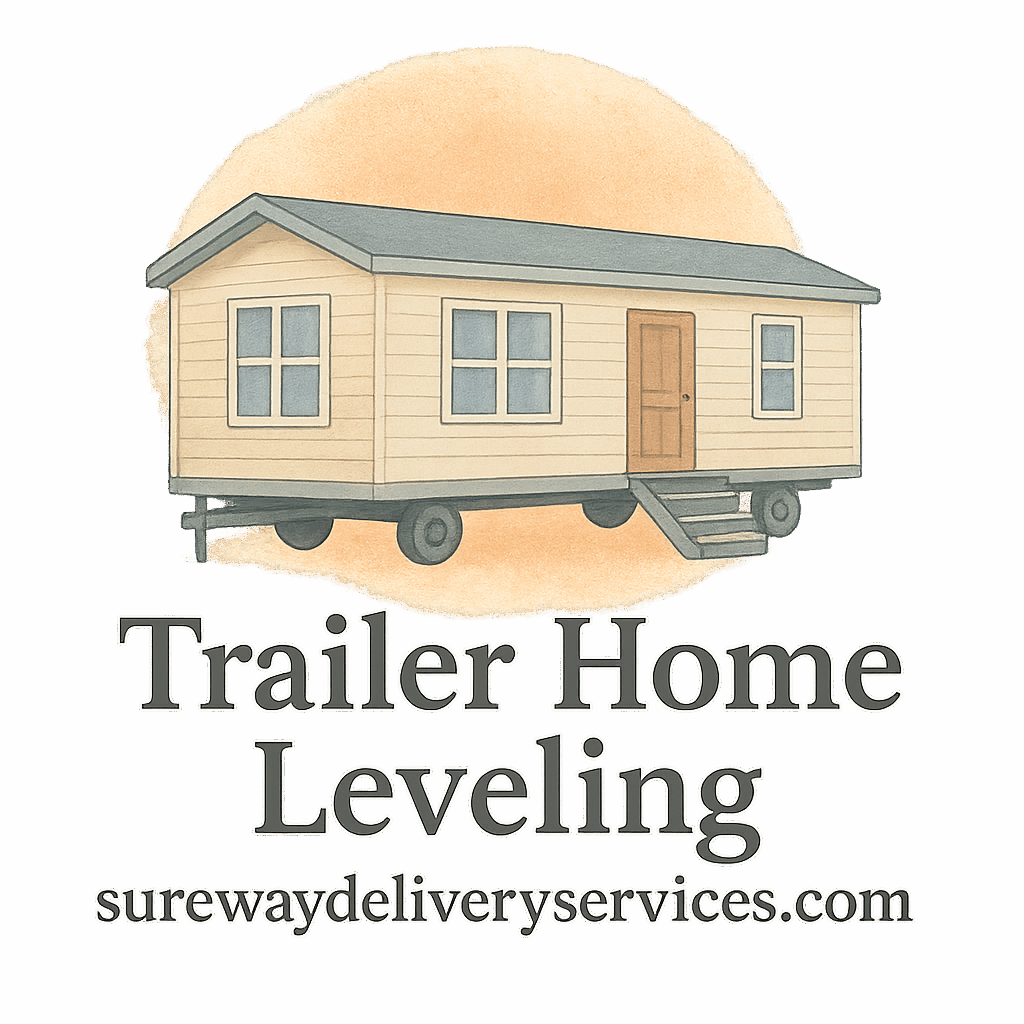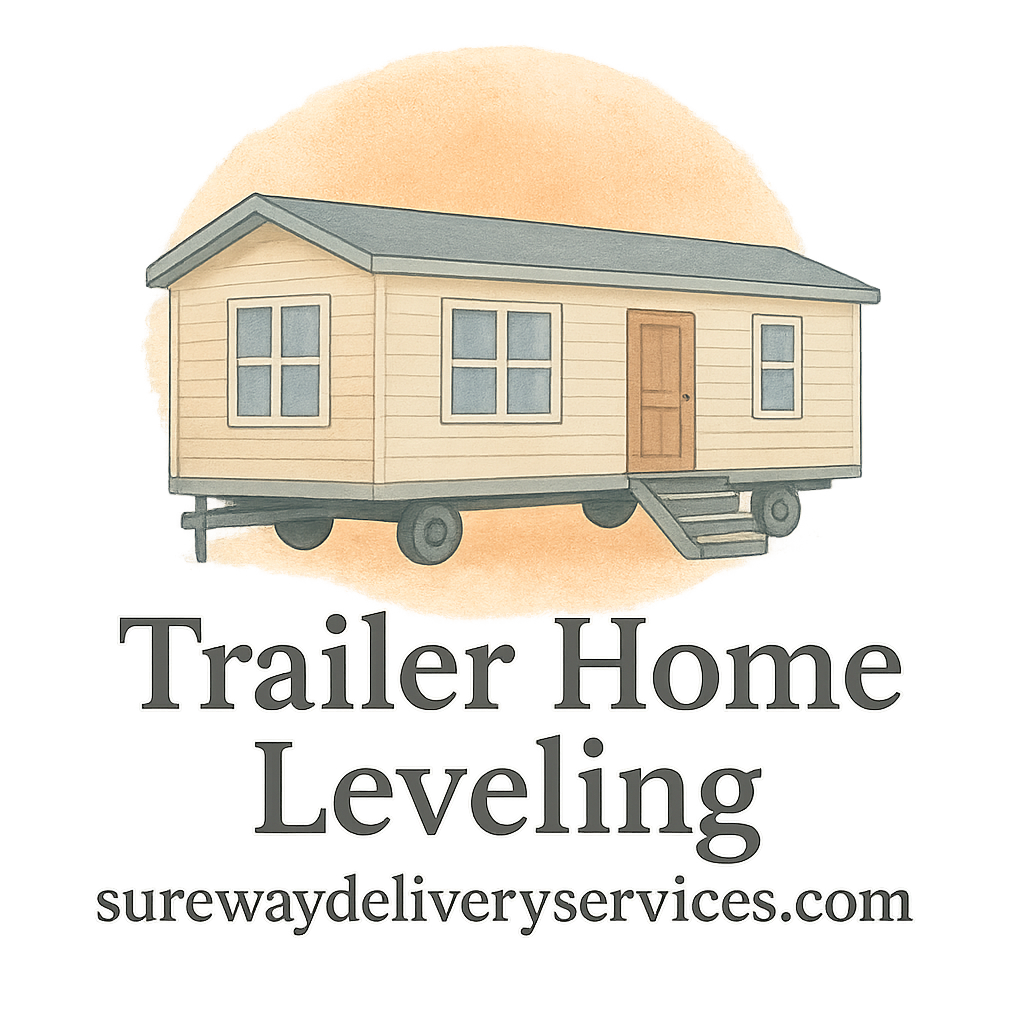Introduction to Trailer Home Leveling
Leveling your trailer home isn’t just a maintenance task—it’s essential for the safety and longevity of your home. Uneven floors, sticking doors, and stress cracks are all signs your trailer may need leveling. But here’s the kicker—leveling services aren’t always cheap, and many homeowners are caught off guard by the costs.
The good news? You don’t have to empty your wallet upfront. In this guide, we’ll walk you through five financing options for trailer home leveling services, so you can find the best way to protect your home and your budget.
For a deeper dive into the basics, check out our Introduction to Trailer Home Leveling.
What Is Trailer Home Leveling?
Trailer home leveling is the process of adjusting and supporting the foundation of a mobile home to ensure it sits evenly. Over time, natural settling or soil movement can throw things off balance.
This process typically involves jacks, blocks, and specialized equipment—tools discussed further in our Techniques and Methods section.
Why Leveling Your Trailer Home Matters
Living on a slant isn’t just annoying—it’s dangerous. Uneven homes can cause structural damage, water leaks, and even plumbing issues. Regular inspections and timely repairs help prevent small issues from becoming costly disasters.
Explore how maintenance and inspection play a vital role in long-term trailer home care.
The Average Cost of Trailer Home Leveling
The cost to level a trailer home can range from $500 to $2,000 or more, depending on size, damage, and location. Knowing this helps when budgeting or exploring financing options, which we’ll cover shortly.
For tips on estimating your budget, visit our guide on cost and budgeting.
Common Trailer Home Leveling Challenges
Signs You Need Leveling Services
Not sure if your home needs leveling? Keep an eye out for:
- Doors and windows that don’t close properly
- Cracks in the walls
- Uneven flooring
These are warning signs that shouldn’t be ignored. See more in our Signs tag section.
Potential Risks of Ignoring Leveling Issues
Waiting too long can lead to:
- Plumbing leaks
- Roof stress
- Frame damage
All of which add hefty repair bills later. Read about other trailer issues you could face without proper leveling.
Overview of Financing Options
When you don’t have thousands lying around for repairs, financing can be a lifesaver. Let’s break down five practical options for funding your trailer home leveling project.
1. Personal Loans
How They Work
Personal loans are unsecured loans you can use for almost anything—including home leveling. You borrow a lump sum from a bank or online lender and pay it back monthly with interest.
Pros and Cons
Pros:
- Fixed monthly payments
- Quick approval process
Cons:
- Credit-dependent
- Higher interest than home equity loans
Where to Apply
Check local credit unions, online lenders, or your bank. Compare rates to get the best deal.
This option is commonly used in the home leveling community and can be flexible for mid-range budgets.
2. Home Improvement Loans
Best for Major Renovations
If your trailer home needs a complete overhaul (think re-leveling, insulation, and plumbing), a home improvement loan might be your best bet. These loans often come with lower interest rates because they’re specifically designed for renovations.
Loan Terms & Interest Rates
You may qualify for APR rates from 4% to 10%, depending on credit. Some require collateral.
Requirements to Qualify
- Proof of income
- Solid credit score (usually 620+)
- Project quote or contractor estimate
You can explore trailer service packages to get accurate quotes for your loan application.
3. Credit Cards
Short-Term Financing Option
Have a rewards credit card with available credit? You might consider putting leveling expenses on it—especially if the total is under $1,000.
Managing Interest and Payments
Look for 0% APR introductory offers, but be cautious—interest rates can skyrocket after the promo period.
Is This Right for You?
Only use this method if you can pay off the balance quickly. Otherwise, interest fees could outweigh the convenience.
Check out other homeowners’ success stories who financed services creatively.

4. In-House Financing from Leveling Companies
Understanding Service-Based Financing
Many trailer home leveling companies offer in-house financing. This means they break down the cost into manageable monthly payments.
Pros: Simplicity and Flexibility
- No credit checks in some cases
- Easy approval
- Payment plans customized to your budget
Questions to Ask Your Provider
- Is there an interest rate?
- Are there late fees?
- What happens if I miss a payment?
Explore service hiring options with in-house financing availability.
5. Government Grants and Assistance Programs
Local and Federal Support Options
Depending on your location and income level, you may qualify for grants or low-interest loans through HUD or USDA.
Who Qualifies?
These programs are ideal for:
- Low-income homeowners
- Elderly residents
- Rural communities
Explore options that focus on trailer details and basic infrastructure improvements.
How to Apply for These Programs
Check your state’s housing department or the federal benefits website. Apply early—they often run out of funds quickly.
Budgeting Tips Before You Finance
Planning Your Leveling Budget
Always get multiple quotes from licensed contractors. Add 10–15% extra for unexpected issues.
Use our cost tips tag to help plan realistically.
Avoiding Overcharges
Some companies overcharge unsuspecting homeowners, especially in emergencies. Know what to expect in terms of pricing.
Check out our overcharge warning guide.
Tools and Checklists to Stay Organized
Use digital tools or simple spreadsheets to keep track of:
- Financing applications
- Quotes
- Payment schedules
Download our trailer home checklist for better budgeting.
Choosing the Right Financing Option for You
Compare All Options Side-by-Side
Each financing route has pros and cons. If you’re borrowing $1,000–$5,000, a personal loan or in-house plan may work. For larger projects, grants or home improvement loans might be better.
Refer to our recommendations section to weigh your options.
Consult With Leveling Experts
Before signing anything, talk to trusted professionals. Use the customer reviews tag to vet service providers.
Conclusion
Trailer home leveling isn’t optional—it’s essential. But it doesn’t have to break the bank. Whether you’re leaning on a credit card or applying for a federal grant, there’s a financing option that fits your needs.
Remember: the longer you wait, the worse (and more expensive) things get. Use this guide to take action today. And for all things trailer maintenance, visit Trailer Home Leveling and stay in the know.
FAQs
1. What’s the cheapest way to finance trailer home leveling?
In-house financing or 0% APR credit cards offer low-cost short-term solutions if paid off quickly.
2. Can I use a personal loan even with bad credit?
Yes, but expect higher interest rates. Look into secured loans or co-signers for better terms.
3. Are trailer leveling grants hard to get?
They can be competitive, but if you qualify based on income or location, your chances are good.
4. What tools are used in trailer leveling?
Hydraulic jacks, water levels, and shims. Learn more in our tools section.
5. Should I DIY trailer leveling to save money?
Not recommended. Improper leveling can cause major damage. Always consult a pro.
6. How often should I check my trailer’s level?
At least once a year or after severe weather. Check our annual maintenance tag.
7. How can I avoid being overcharged?
Get multiple quotes, read contracts carefully, and explore customer reviews.


